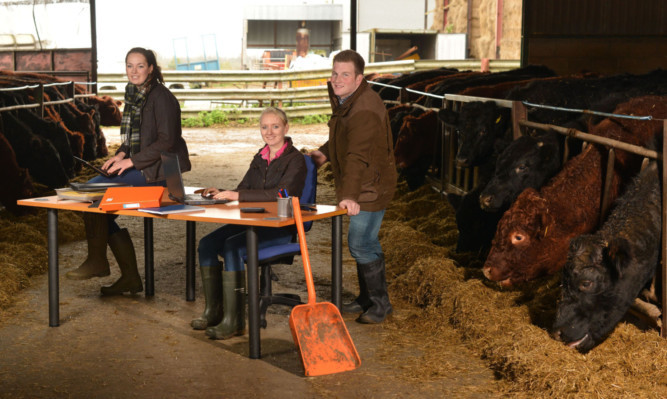With more than three million farming customers flocking through its doors, McDonalds is one of the largest players in the UK food supply chain.
The statistics are impressive, with in excess of 97,000 people employed in its restaurants and more than 16,000 farmer suppliers in the UK and Ireland.
It might seem strange, then, for the company to pay a great deal of attention to a training programme that will cater for only three agriculturalists each year.
For director of McDonalds supply chain Connor McVeigh, however, it makes perfect sense.
“We are continuing our commitment to cultivating the best of British farming talent as applications open for our 2015/16 Progressive Young Farmer Training Programme.
“This one-of-a kind training scheme aims to encourage more young people to consider a career in agriculture, at a time when the sector faces a significant skills shortage.
“The three young farmers who have just completed this year’s course have turned out to be fantastic ambassadors, and we hope that they will have a ‘halo effect’ over many of their peer group.”
Mr McVeigh admitted that there is a degree of self-interest for McDonalds. It commits to relying entirely in the UK for produce from Great Britain and Ireland for its beef, french fries, pork, organic milk and free-range eggs.
This is a policy that relies on a skilled and well-staffed farming sector and, with predictions of a 50,000 to 60,000 shortfall in new entrants over the next decade, that could be a doubtful proposition.
“Statistics released earlier this year found that skills deficiencies impact recruitment for 28% of farming roles a more persistent and concentrated shortage than in almost any other sector.
“It was also revealed that farmers of the future will need more technical, ICT and management skills, “ said Mr McVeigh.
“In addition, ONS data highlights the need to attract thousands more young people to the sector as the current workforce ages.
“Younger women proved the most under-represented, with only one-in-six of today’s UK farmers being female,” he added”
The programme opens to applicants today, three weeks ahead of the Oxford Farming Conference which will focus on how British farming can be more ambitious and compete at a global level, with a focus on innovation and progressive skills.
A part of Farm Forward, McDonald’s Progressive Young Farmer Training Programme aims to address the issue by widening the talent pool to include young people with and without farming backgrounds.
Students at colleges and universities throughout the UK, not just those studying agriculture, are invited to apply to the programme.
The programme is now in its fourth year and has been honed to help participants develop the right mix of skills with a blend of animal husbandry and the technical and business management skills needed to succeed in today’s farming sector.
During the 12-month paid placement, students are mentored by progressive farmers and given first-hand experience of practical farming and business management, as well as a unique opportunity to trace the entire supply chain of McDonald’s ingredients from farms to the restaurant’s front counter.
The programme starts with an induction course at McDonalds head office at East Finchley before students head of to farm placements with progressive suppliers.
“There is also the chance to work with processors in the middle of the chain such as Arla, Tulip and McCains.”
